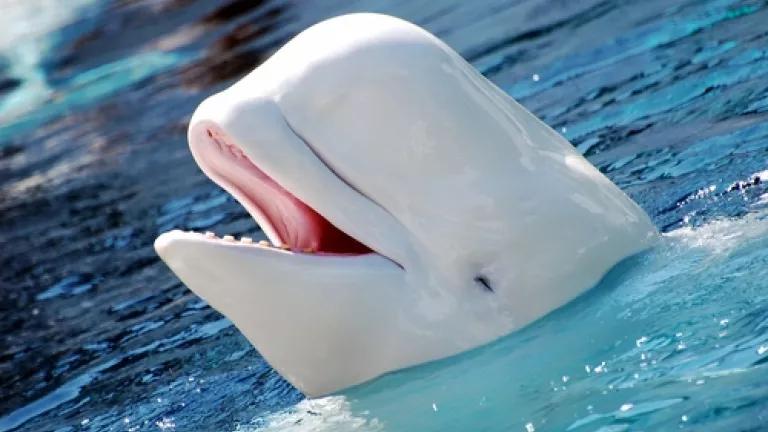This Week in Whales: Video of Conflict Between Sea Shepherd and Japanese Whalers; Manitoba May Protect Belugas from Shipping; Dolphin Megapod Migration Filmed by Drone...

- Video has been released of the frightening run-in last week between crew members aboard a Sea Shepherd ship and two Japanese whaling vessels. The confrontation comes as Japan’s whaling season draws to a close and just weeks before the International Court of Justice is scheduled to rule on Australia’s legal bid to end Antarctic whaling. When the case was argued last year, Japan was steadfast in asserting that its whaling was for scientific purposes. Australia showed that the large-scale killing of whales was commercial and was not exempt from the International Whaling Commission’s moratorium on whaling. Hmm, perhaps there is a scientific element after all: maybe Japan’s doing research on how gullible people can be if they buy Japan’s arguments.
- Canada is home to one of the largest beluga whale populations in the world. The province of Manitoba has announced that it will take steps to minimize disturbances to its beluga population by coordinating with shipping companies to limit traffic through estuaries where birthing and feeding occurs. Beluga whales return yearly to the same locations and any change in environment can have drastic effects. Manitoba’s taking a step in the right direction, but the proof’s in the pudding. Let’s see the details before we give Manitoba a thumbs up. My colleague Taryn knows all too well the negative repercussions that can result if we don’t take aggressive steps to limit threats to beluga populations.
- Beautiful images of migrating dolphins were captured by a flying drone in Orange County, California. The video below shows a “megapod” in action.
- Bottlenose dolphins in the Barataria Bay of Louisiana are experiencing extreme health issues after contact with oil from the BP Deepwater Horizon oil spill disaster. Researchers have determined three ways dolphins were exposed to oil: direct contact, ingestion, and inhalation. Ruling out many other culprits for compromised health, researchers have zeroed in on exposure to oil from the oil spill. Chris Parsons, a professor of environmental science and policy at George Mason University said that the newly released research is “a smoking gun as far as the Deepwater Horizon spill is concerned.”
- The U.S. Navy’s sonar testing and their continued disregard for the harm it inflicts on marine life has been discussed frequently by many of us at NRDC. I was recently interviewed by OBP News to discuss details of the Navy’s actions in the Pacific Northwest and what can be expected to happen to marine mammals as a result of the Navy’s activities.
Meanwhile, this week in Wales...
An extra 4.2 million pounds has been allotted to Welsh councils in order to assist communities repair flood damage resulting from intense storms along the coast during winter months.
Photo Credit: By Steve Snodgrass (Flickr:Beluga) [CC-BY-2.0 (http://creativecommons.org/licenses/by/2.0)], via Wikimedia Commons.

